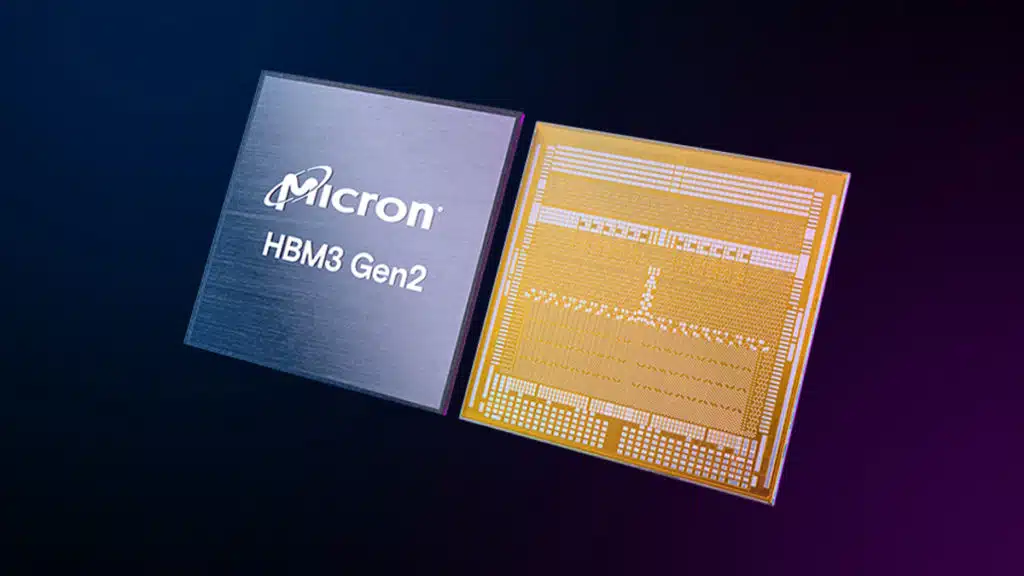
Micron Technology has announced that it has begun sampling the industry’s first 8-high 24 GB HBM3 Gen2 memory, featuring bandwidth greater than 1.2 TB/s and a pin speed of over 9.2 Gb/s. According to Micron, this would equate to up to a 50% improvement over currently shipping HBM3 solutions. The new memory, which is designed to advance generative AI innovation, also boasts a 2.5x performance-per-watt improvement over previous generations.
“Micron’s HBM3 Gen2 technology was developed with a focus on unleashing superior AI and high-performance computing solutions for our customers and the industry,” said Praveen Vaidyanathan, vice president and general manager of Micron’s Compute Products Group. “One important criterion for us has been the ease of integrating our HBM3 Gen2 product into our customers’ platforms. A fully programmable Memory Built-In Self Test (MBIST) that can run at the full specification pin speed positions us for improved testing capability with our customers, creates more efficient collaboration and delivers a faster time to market.”
“At the core of generative AI is accelerated computing, which benefits from HBM high bandwidth with energy efficiency,” said Ian Buck, vice president of Hyperscale and HPC Computing at NVIDIA. “We have a long history of collaborating with Micron across a wide range of products and are eager to be working with them on HBM3 Gen2 to supercharge AI innovation.”
The foundation of Micron’s high-bandwidth memory (HBM) solution is Micron’s industry-leading 1β (1-beta) DRAM process node, which allows a 24Gb DRAM die to be assembled into an 8-high cube within an industry-standard package dimension. Moreover, Micron’s 12-high stack with 36GB capacity will begin sampling in the first quarter of calendar 2024. Micron provides 50% more capacity for a given stack height compared to existing competitive solutions. Micron’s HBM3 Gen2 performance-to-power ratio and pin speed improvements are critical for managing the extreme power demands of today’s AI data centers. The improved power efficiency is possible because of Micron advancements such as doubling of the through-silicon vias (TSVs) over competitive HBM3 offerings, thermal impedance reduction through a five-time increase in metal density, and an energy-efficient data path design.
Micron, a proven leader in memory for 2.5D/3D-stacking and advanced packaging technologies, is proud to be a partner in TSMC’s 3DFabric Alliance and to help shape the future of semiconductor and system innovations. As part of the HBM3 Gen2 product development effort, the collaboration between Micron and TSMC lays the foundation for a smooth introduction and integration in compute systems for AI and HPC design applications. TSMC has received samples of Micron’s HBM3 Gen2 memory and is working closely with Micron for further evaluation and tests that will benefit customers’ innovation for the next-generation HPC application.
The Micron HBM3 Gen2 solution addresses increasing demands in the world of generative AI for multimodal, multitrillion-parameter AI models. With 24GB of capacity per cube and more than 9.2Gb/s of pin speed, the training time for large language models is reduced by more than 30% and results in lower TCO. Additionally, the Micron offering unlocks a significant increase in queries per day, enabling trained models to be used more efficiently. Micron HBM3 Gen2 memory’s best-in-class performance per watt drives tangible cost savings for modern AI data centers. For an installation of 10 million GPUs, every five watts of power savings per HBM cube is estimated to save operational expenses of up to $550 million over five years.
